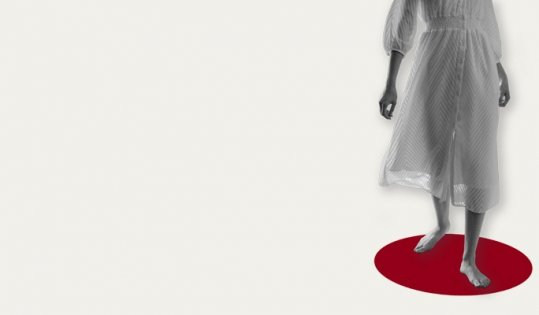Love like a professional

The word ‘philanthropy’ comes from the ancient Greek philánthrōpos - a lover of humanity. It is associated with a pull at the heartstrings, a purely human impulse of giving.
Today, however, modern philanthropy is a strategic activity which involves the effective allocation of private funds to solve specific problems. Entrepreneurs and social organisations working with them use advanced tools, analyse social needs and employ high-class specialists. Philanthropy has reached the status of a scientific field.
- Anyone who decides to share their resources with others can become a philanthropist. Resources are not only money, but also time, knowledge, competence, contacts, image,” explains Anna Korzeniewska, founder of the Social Impact Alliance for Central & Eastern Europe - an international think tank whose mission is to create an ecosystem supporting philanthropy in Central & Eastern Europe. She cites the results of the 'Philanthropy in CEE 2020' survey conducted by Kantar among the inhabitants of Poland, Hungary, the Czech Republic and Slovakia, which shows that only every fourth donor would be willing to call themselves a philanthropist. Currently, young people from larger cities are more likely to identify themselves with this word (31% among people aged 18-30).
The potential for philanthropy in the region among individual donors is 3.3 billion euros, of which about 2 billion euros are already being given today. In Poland, it is 1.9 billion in potential and 1 billion in actual implementation. Nearly half of the inhabitants of Central and Eastern Europe have donated money to charity over the past year. In Poland, 51% of Poles have donated money; we donate approximately 0.5% of their monthly earnings to help. For comparison, according to Nielsen's data, we spend eight and four times as much on alcohol and sweet and savoury snacks respectively.
- There will always be fewer resources than needed. We must learn to use them effectively. This is what strategic philanthropy is all about - the transition from emotional impulse to sustainable, long-term solution to social problems, and systemic prevention of their occurrence, assuming that the private capital is respected and used effectively, believes Anna Korzeniewska. She draws on the best practices from the business world. All philanthropic undertakings of a strategic character are preceded by questioning their goal, the way that goal is achieved and the possibility of measuring the effectiveness of their actions, she adds.
According to research, clear and transparent reporting is extremely important. It is obvious to us that strategic philanthropy should be thought through (this is what 45% of respondents expect), based on a long-term (39%) and informed (44%) strategy. We want aid to bring about sustainable social change - for almost 70% of donors, impact is important, i.e. awareness of what is changing thanks to their actions, says Korzeniewska.
What forms of financial support do entrepreneurs use most often for philanthropy?
- According to the Donors Forum, we have about 200 corporate foundations in Poland. This is the highest level of business involvement in offering aid, because it requires the separation of formal structures. Not every company is ready for this and not every company needs it. In cooperation with selected organisations, it is also possible to establish special purpose funds, Donor-Advised Funds, create or join impact funds - with the English Social Impact Funds - or fund selected initiatives with a donation, lists Anna Korzeniewska before adding: It is important to do it wisely and monitor the effects. In Poland and other CEE countries, the problem with business involvement is also that social spending is not treated as a tax cost. As a result, funds for helping are transferred most frequently to the marketing department and spent not on donation, but on purchase on the basis of an invoice.
Can wise philanthropy be learnt?
- Yes. You have to be careful and move away from reactive help, in response to needs, and towards planned help, even in its simplest form, also in the context of tax - because we can help more thanks to refunds from reliefs. In short, we are considering which areas are important to us - for example, the situation of the elderly, education, equality - we are looking for NGOs or ready-made programmes or mechanisms which, in our opinion, work best in these areas and it is to them that we give the funds, we support them with knowledge. Of course, not everyone has the time and competence to verify social organisations. We all need a good charity evaluator who would analyse the impact of social organisations and verify their finances - both expenses and needs - in a simple and accessible way - explains Korzeniewska.
One of the answers to this demand is Founders Pledge. The international non-profit organisation for entrepreneurs wishing to do philanthropic work has offices in London, Berlin, New York and San Francisco. The organisation's experts help its members to develop strategies and effectively implement aid programmes. Currently, the initiative has over 1,450 members from 35 countries, who have committed themselves to donate over $3 billion to charity. Founders’ members include: Eric and Wendy Schmidt (Eric was Google's president from 2001-11), Niklas Adalberth (co-founder of the $5.5 billion Klarna bank), Vikrant and Surbhi Bhargava (Vikrant was co-founder of the PartyGaming platform), Curtis and Shirley Chambers (Curtis was Uber's technical director from 2010-17) or Jaan Tallinn (co-founder of Skype and Kazza). The first person from Central and Eastern Europe to join Founders is Dominika Kulczyk.
The co-founder and CEO of Founders Pledge is David Goldberg, a graduate of UCLA and Cambridge, who joined the non-profit sector with experience in advertising, marketing, banking and real estate. In his introduction to the organisation's website, Goldberg admits that in the face of a huge number of charities (1.5 million in the US alone), but also countless requests for support, philanthropy is not an easy matter. In general, the basic principle must be adhered to: choose the most effective organisation based on evidence of effectiveness, not advertising brochures. When verifying organisations for collaboration, you need to know what questions to ask: internal structure, development plans, transparency in finances, flexibility in adapting to new realities and changes in methods, past successes, possible risks and returns on investment. Just like in business.
- Most NGOs are not subject to strict external evaluation. We assess all of our recommended organisations according to their track record, organisational strength, and their future projects. We always consult a wide range of experts and evaluate the internal monitoring and impact measurement of the organisation,' declares John Halstead, Head of Applied Research Founders Pledge. - A high-impact charity is one that does the most good per dollar you donate.
When hunting for high-impact charities, we first identify a cause to focus on based on three principles: scale, tractability and neglectedness. We quantify the scale of the problem, asking how many people (or animals) it affects, and the extent of harm the problem causes them. By assessing the evidence, we determine whether we can meaningfully make progress in improving the problem (its tractability) before assessing how much funding the area already receives (its neglectedness). If a particular issue is already crowded by lots of philanthropic funding, it makes sense to turn our donors’ attention to issues that lack support and have significant funding gaps instead.
Once we’ve found a problem that needs addressing, we determine which interventions are most effective. We look for solutions that have been studied by methodologically robust research, that are scientifically proven to work, and are highly cost-effective. For highly testable interventions, such as cash transfers or bednet distribution, we assess the robustness of the evidence supporting their use and their potential cost-effectiveness. For more uncertain areas, like policy advocacy, we prioritise by building cost-effectiveness models or use the heuristic factors of scale, tractability and neglectedness to estimate their impact, concludes John Halstead.
The list of experts, scientists and practitioners depends on the area under consideration and can be broad. The report on menstrual health and hygiene by Founders Pledge, ‘A bloody problem. Menstrual poverty: why and how we have to end it’, was prepared by researchers from the sociology of medicine (Dr Marni Sommer, Columbia University), public health (Dr Julie Hennegan, Johns Hopkins Bloomberg School of Public Health) and reproductive health (Dr Anjalee Kholi, Georgetown University). The research team reviewed the available literature, identified the various interventions used so far and conducted interviews. Finally, they contacted the best organisations for additional information.
I saw for myself in the spring of 2016 when I went to Lebanon to see how the Polish Centre for International Aid supports refugees from Syria.
The head of the PCPM, Dr Wojciech Wilk, told us that they have put their trust in the Lebanese workers, the so-called field officers, who know the reality, the scale of needs and are able to reach those who need help.
The PCPM patent was indeed fresh: it consisted in rent subsidies for Syrians who rent rooms, cellars and garages. The 'cash for rent' programme was conceived in such a way that, thanks to agreements with Lebanese banks and ATM cards issued by Polish banks with purposeful use, the aid can be provided quickly and its costs are minimal.
I remember how impressed I was by Rana Gabi, the head of the PCPM mission in Lebanon. She is open, factual, with a sense of humour and fluent in four languages. She spent most of her life in Poland, where she came to as a child from Lebanon. From 2014, she was thrown into the deep end in the province of Akkar, travelling around and visiting the families of refugees, checked their living conditions, collected information, taught Lebanese workers how to carry out house calls, monitored and improved the aid system. The roaming refugee families without a roof over their heads, often with small children, came every day. Late in the evening, Rana would sit at the table in the office, the day ended but the dramas continued. She admitted that she thought: What does it matter what we do if there is an infinite number of people in need of help?
A few years later, at the beginning of August this year, I saw Rana in television reports from the giant Beirut explosion that ravaged Beirut. Journalists counted the deaths, thousands of injured and missing, and Rana told me what the search and rescue group and the PCPM medical team were doing on the spot, what help had already been organised (plastic films, tarpaulins to cover damaged roofs and windows, solar lamps) and how their further activities can be supported.
Joanna Klimowicz
The article was published in "Wolna Sobota” of "Gazeta Wyborcza” on 17 October 2020.


